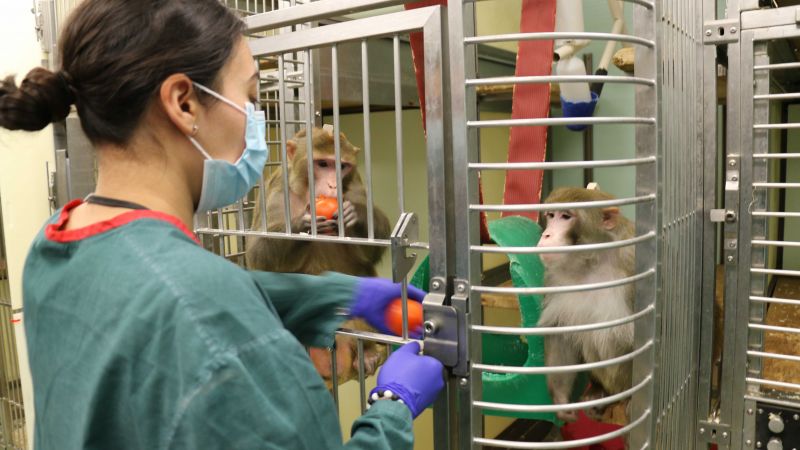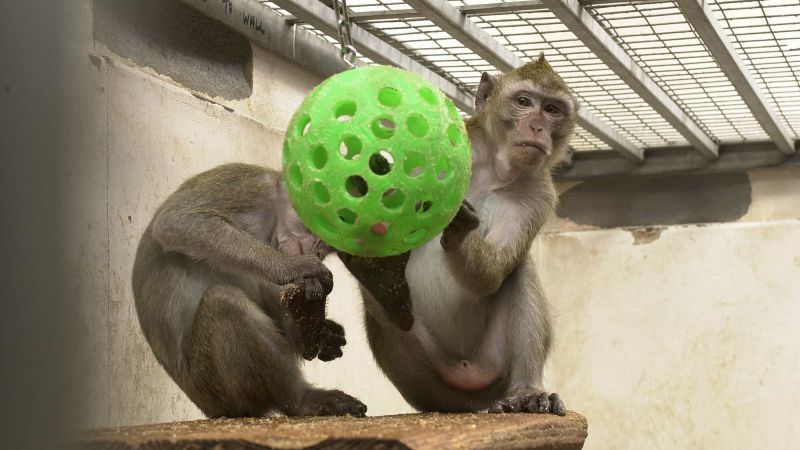
 The Biomedical Animal Research News (BARN) Digest collates animal research news from UAR’s 150+ member organisations into one, easy-to-access feed. These stories include medical studies and advancements, animal welfare and 3Rs news, funding, regulatory, and policy news, and conservation and environmental research that involves animal testing.
The Biomedical Animal Research News (BARN) Digest collates animal research news from UAR’s 150+ member organisations into one, easy-to-access feed. These stories include medical studies and advancements, animal welfare and 3Rs news, funding, regulatory, and policy news, and conservation and environmental research that involves animal testing.
Each week, we pick the most interesting, groundbreaking, and important news to feature in a weekly news roundup. In this roundup, we feature news stories from 17 - 23 April 2025.
View BARN to see daily news updates from UAR members.
BASIC RESEARCH
Mouse study suggests a common diabetes drug may prevent leukaemia
UNIVERSITY OF CAMBRIDGE | MICE
"Metformin, a widely used and affordable diabetes drug, could prevent a form of acute myeloid leukaemia in people at high risk of the disease, a study in mice has suggested. Further research in clinical trials will be needed to confirm this works for patients."
More ticks carry Lyme disease bacteria in pheasant-release areas
UNIVERSITY OF EXETER | TICKS, PHEASANTS
"Ticks are more likely to carry the bacteria that can cause Lyme disease in areas where pheasants are released, new research shows... They found that Borrelia spp. – the bacteria that can cause Lyme disease – was almost 2.5 times more common in ticks in the pheasant-release areas."
ANIMAL RESEARCH REGULATION
Big Changes in EU Hazard Classification
EUREKA BLOG | DRUG DEVELOPMENT
"With the European Union’s Green Deal and Chemicals Strategy for Sustainability the EU has set a goal to better protect human health and the environment. As part of this strategy the European Commission has introduced new hazard classes for endocrine disruptors as well as for chemicals that do not break down in the environment and that have a high potential to bioaccumulate in living organisms or spread across the water cycle, including drinking water.
Suppliers placing substances on the EU market need to comply with new classification rules as of May 1st, 2025, while for mixtures this will be May 1st, 2026"
https://www.criver.com/eureka/big-changes-eu-hazard-classification
NON-ANIMAL METHODS AND ALTERNATIVES
Traditional or Alternative: That is the New Question
EUREKA BLOG | DRUG DEVELOPMENT
"Recent advances in non-animal alternatives are putting drug developers on a learning curve to determine the right combination of models to advance therapies before testing in humans."
https://www.criver.com/eureka/traditional-or-alternative-new-question
ANIMAL BEHAVIOUR AND WELFARE
Primate mothers display different bereavement response to humans
UCL | MONKEYS
"Macaque mothers experience a short period of physical restlessness after the death of an infant, but do not show typical human signs of grief, such as lethargy and appetite loss, finds a new study by UCL anthropologists."
https://www.ucl.ac.uk/news/2025/apr/primate-mothers-display-different-bereavement-response-humans
Family first: scientists reveal long-tailed tits' remarkable family bonds
UNIVERSITY OF SHEFFIELD | BIRDS
"Scientists at the University of Sheffield have discovered the tiny birds, which are a familiar sight in UK gardens, maintain strong family bonds outside of their local ‘kin-neighbourhoods’, with those without fledglings often helping to support new parents – just like human families."
Shelling out the facts: New RVC study reveals most common health disorders of tortoises in the UK
ROYAL VETERINARY COLLEGE | TORTOISES
"New research from the Royal Veterinary College (RVC) has revealed beak abnormalities, overgrown nails and shell abnormalities as the most common health disorders affecting pet tortoises, terrapins and turtles in the UK."
Visit BARN for daily news updates
Last edited: 20 October 2025 13:23



